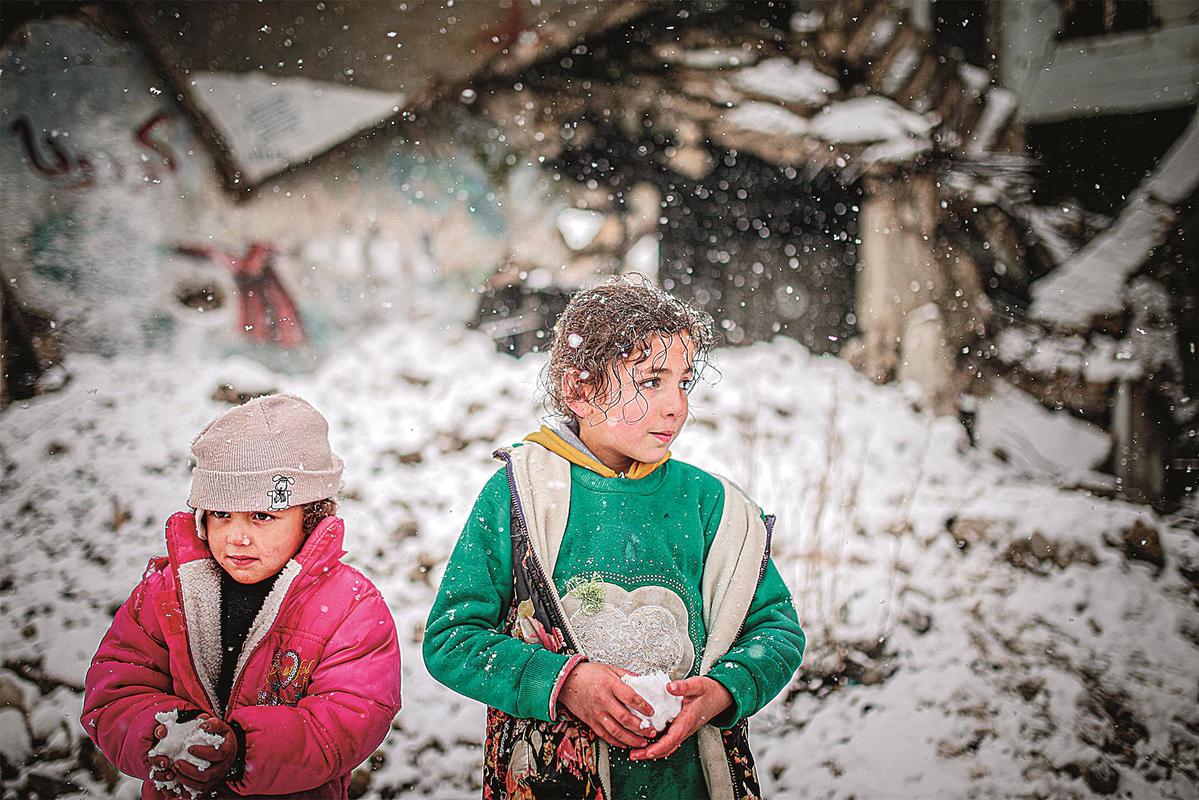Cloud hangs over Syria's regional thaw


While neighboring countries reach out, US works to sap progress, experts say
Syria's warming relations with its Arab neighbors may provide some economic relief to the war-torn nation but Washington's influence is keeping them from fully participating in easing and solving Syria's humanitarian crisis, experts say.
Arhama Siddiqa, a Middle East expert and research fellow at the Institute of Strategic Studies Islamabad in Pakistan, said the 11-year civil war in Syria has been catastrophic. She also noted that at the core of thawing relations between Syria and its neighbors was economics.
"Economic diplomacy is the order of the day, especially when it comes to the UAE, which has a very economic mindset as we saw when it signed the Abraham Accords," Siddiqa said.
In September 2020, the United States brokered the Abraham Accords-agreements signed between Israel and the United Arab Emirates, Bahrain, Sudan and Morocco that normalized ties.
Khaled Almasri, a former dean of the Faculty of International Relations and Diplomacy at Al-Sham Private University in Damascus, said none of the parties can take any step toward normalizing relations with Syria without getting "a green light" from the US, as the Arab region is "highly penetrated by outside powers".
Rasha Al Joundy, a Gulf expert and senior researcher at the Dubai Public Policy Research Centre, believes the so-called Caesar sanctions also have something to do with it. And if they were not lifted, she said, it would be "hard for any country or private entity to enter into a business deal with Syria", unless "the Americans allowed it".
The Caesar Syria Civilian Protection Act was signed into law in the US in December 2019. One of its objectives is deterring support for Syrian government-led reconstruction efforts, including by listing or designating non-US entities and individuals under US sanctions.
Geir Pedersen, the United Nations' special envoy for Syria, told the Security Council on Feb 25 that the Syrian war has driven poverty and hunger to "levels higher than at any previous point". He reiterated the need for a "Syrian-led, Syrian-owned political process "that is supported by constructive international diplomacy, "however hard that is".
Almasri said: "As the crisis in Syria reached a new level, most of the players in the region have got to understand the fact that a military solution is not possible anymore."
Eleven years into the Syrian conflict this March, UN Deputy Emergency Relief Coordinator Joyce Msuya, who also serves as assistant secretary-general for humanitarian affairs, said 14.6 million Syrians will depend on humanitarian assistance in 2022-9 percent more than last year and 32 percent higher than in 2020.
Food insecurity
Syria ranks among the 10 most food-insecure countries, with 12 million people considered to be food insecure, according to the UN.
Syria has been mired in conflict and divided into enclaves since the civil war started in 2011. The Syrian Observatory for Human Rights estimates the number of fatalities at around 600,000.
Siddiqa said the UAE has been spearheading the efforts to improve relations with Syria.
Al Joundy said the UAE's position was part of a broader policy, since "it was evident that there was no intention in the West or Washington to back the rebels or make any decision that could enforce a political reconciliation".
Al Joundy added: "It was asserted behind closed doors that there was no strategy in the West beyond fighting ISIS(the Islamic State militant group). For Arab countries, it is dangerous to continue ignoring this reality. This means there is no end to the crisis."
A member of the Arab League until its suspension in November 2011, Syria has been making strides in its relationship with the Arab region despite Western sanctions. Syria is set to host the Arab energy conference in 2024, Bahrain in December appointed its first ambassador to Syria in over a decade, and Jordan fully reopened its main Nasib border crossing with Syria to boost trade.
In January, Syria joined China's Belt and Road Initiative.
"Its participation in the BRI can create a new corridor through the Middle East connecting Iran to Syria via Iraq and would be beneficial to all states in the region," said Siddiqa.
Meanwhile, Almasri in Damascus is watching the increasing tensions in Eastern Europe and the possibility of a new shifting in alliances in the region.
Al Joundy notes that with the situation in Ukraine, the White House "will be harder on Russia's allies, not softer". Syria, often considered part of the Russian alliance, will probably be "under pressure", she said.































